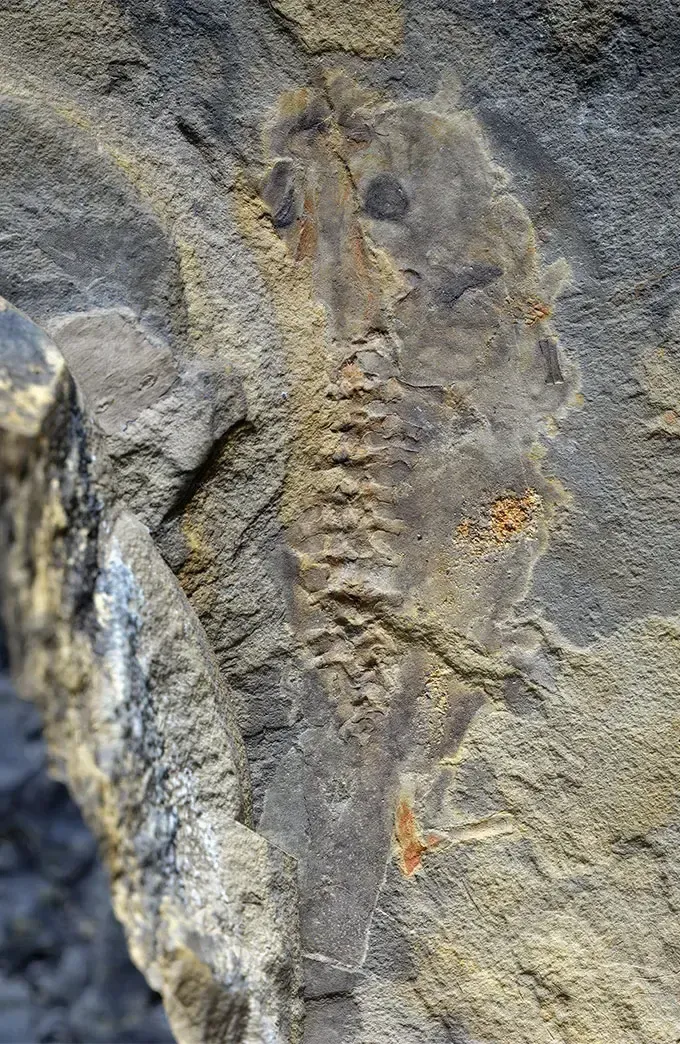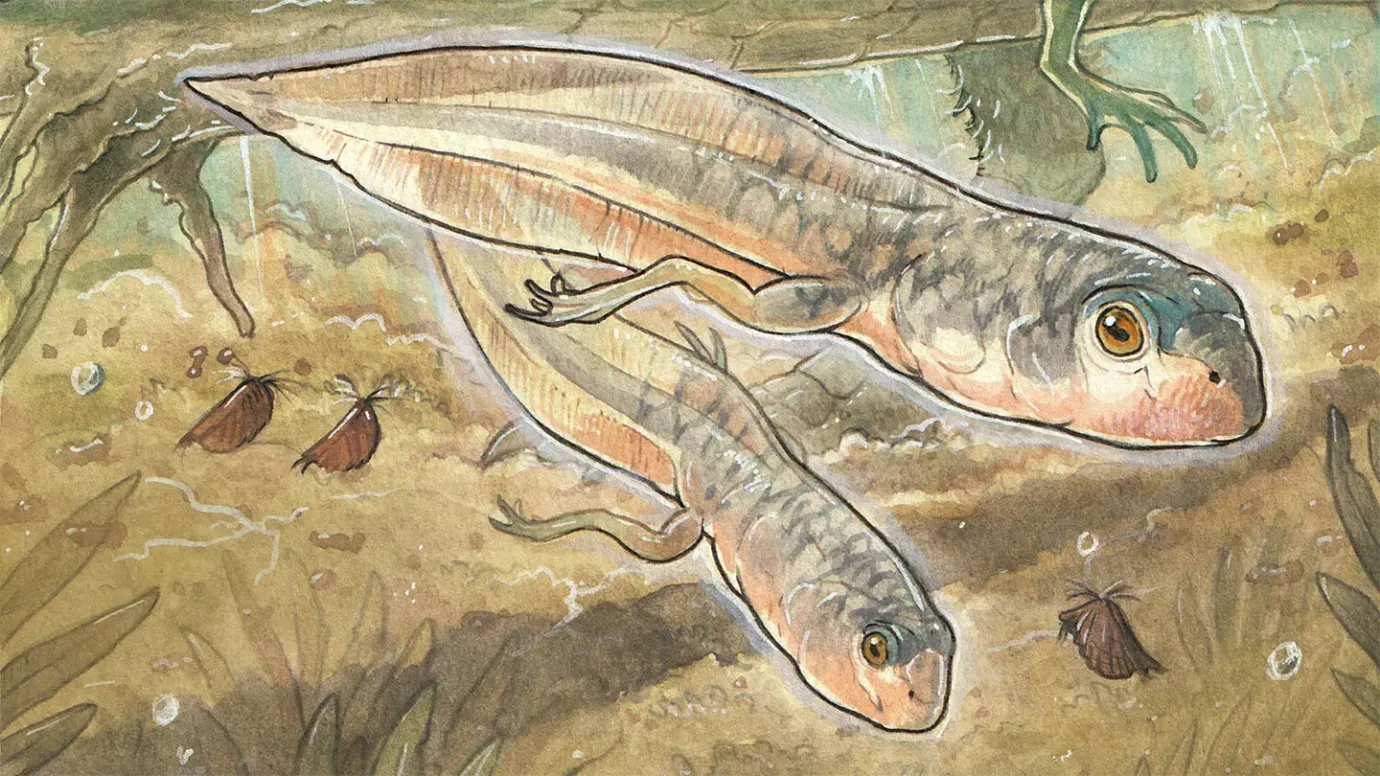News
Scientists have discovered a fossil of a giant tadpole that lived more than 160 million years ago. Photo
Scientists in Argentina have discovered the perfectly preserved fossilized remains of a giant tadpole that lived more than 160 million years ago. These frogs existed alongside dinosaurs during the Jurassic period.
The new fossil surpasses the previous record holder by about 30 million years. Next to the tadpole in Argentine Patagonia, researchers have found hundreds of fossilized frogs of the extinct species Notobatrachus degiustoi, ScienceNews reports.
On the sandstone slab, the scientists made out parts of the tadpole's skull and spine, as well as imprints of its eyes and nerves. "Not only is it the oldest known tadpole, but it's also perfectly preserved," said study author Mariana Chuliver, a biologist at the Maimonides University in Buenos Aires.
According to experts, the fossils are very similar to modern tadpoles – even containing the remains of the gill skeleton system that modern tadpoles use to sift food particles out of the water, AP writes.
This means that the amphibian survival strategy has remained proven for millions of years, helping them survive several mass extinctions, said Ben Kligman, a paleontologist at the Smithsonian National Museum of Natural History who was not involved in the study.
Only verified information is available on the OBOZ.UA Telegram channel and Viber. Do not fall for fakes!






























